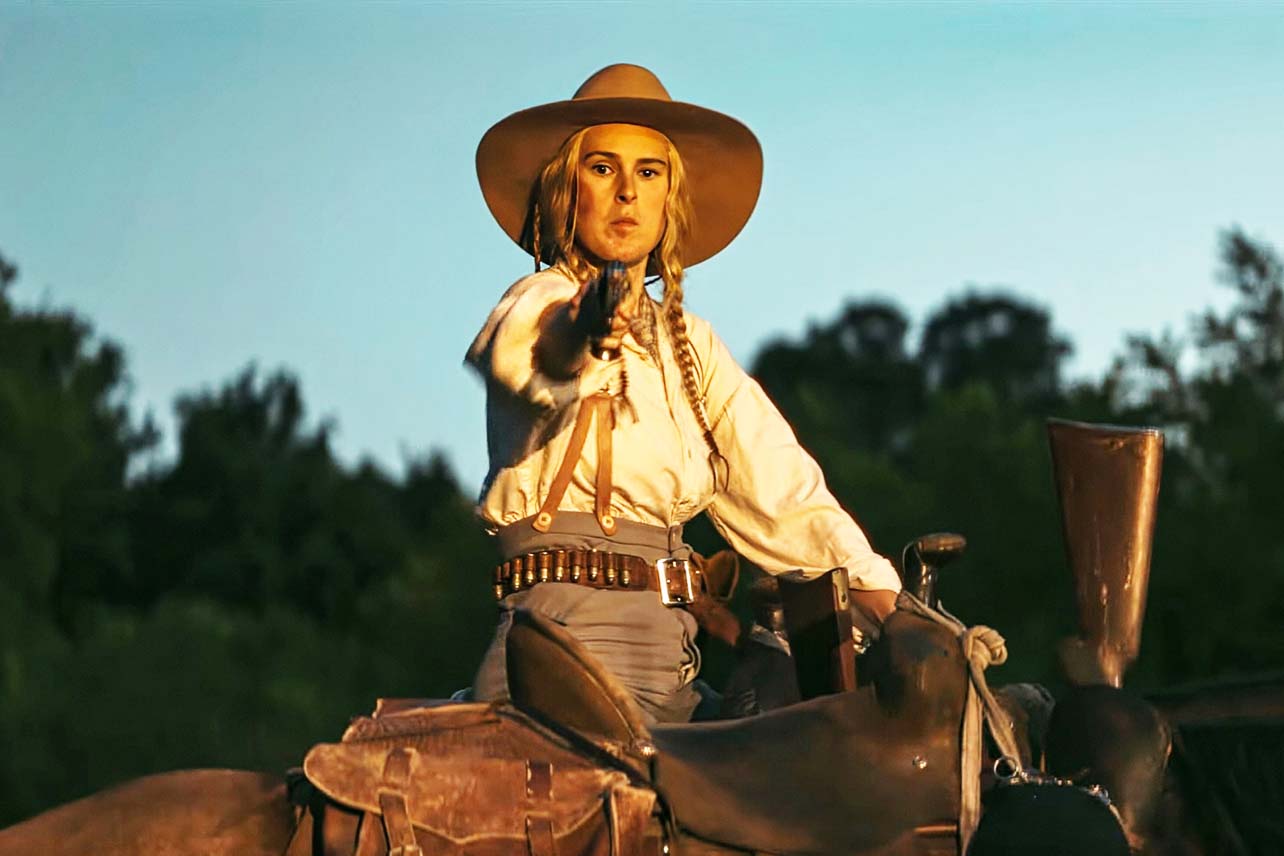The new film Trail of Vengeance, now available on Hulu, offers a traditional Western narrative featuring Rumer Willis as a widow seeking revenge. While it taps into familiar tropes of the genre, the film struggles to stand out amid its repetitive plot and clichéd characters.
Set in 1875, the story unfolds in post-Civil War Kentucky, where former Confederate colonel Davis, portrayed by Jeff Fahey, is pursuing a Senate seat. He employs a violent duo, Frank and Zeke, to eliminate ex-Pinkerton operatives who witnessed his war crimes. The plot thickens when Davis’s actions lead to the death of Caleb, Katherine’s husband, revealing a hidden past as a Pinkerton agent.
Katherine, played by Willis, embodies the archetype of a grieving widow transformed into a vengeful figure. Following Caleb’s murder, she discovers a letter instructing her to seek help from his former colleague, Scobell. Despite Scobell’s initial reluctance to engage in further violence, Katherine’s determination pushes him to assist her in her quest for justice.
Character Dynamics and Performances
The film’s character dynamics hinge on the stark contrasts between good and bad men, as emphasized throughout the narrative. This simplistic moral division is underscored by dialogue that often feels painfully repetitive. Viewers may find themselves anticipating the film’s predictable twists, which detracts from any potential suspense.
Willis’s performance as Katherine attempts to convey a sense of strength, but the script’s limitations hinder her character development. The film presents her as a capable woman in a male-dominated world, yet it fails to explore the complexities of her motivations beyond the straightforward quest for revenge.
As the story progresses, the interactions between Katherine and Scobell provide a glimpse of nuance, but they remain overshadowed by the overarching theme of vengeance. Gbenga Akinnagbe as Scobell serves as a grounding force, contrasting with the exaggerated portrayals of the antagonists.
Critique of Execution
Despite its potential, Trail of Vengeance does not reach the heights of more sophisticated Westerns, such as Viggo Mortensen‘s film The Dead Don’t Hurt. The script, co-written by Johnny Remo, leans heavily on conventional storytelling, resulting in a film that feels uninspired and formulaic.
Visually, the film appears low-budget, with locations that seem recycled and poorly staged action sequences that lack tension. The dialogue often falls into the trap of being overly simplistic, further reducing the film’s impact and leaving audiences wanting more depth and originality.
The film’s exploration of themes surrounding morality is overshadowed by its repetitive nature and an almost cartoonish portrayal of its villains. The narrative fails to engage with the complexities of vengeance, opting instead for a straightforward, albeit dull, depiction of good versus evil.
In conclusion, Trail of Vengeance ultimately feels like a missed opportunity within the Western genre. Its predictable structure and lack of substantive character development lead to a film that may satisfy die-hard fans of revenge tales but will likely leave others disappointed. For those seeking a fresh take on the genre, this film may not deliver the excitement or depth they crave.







































































